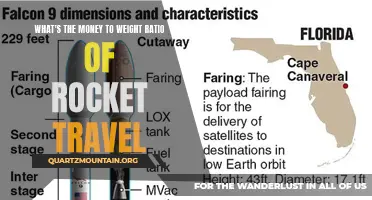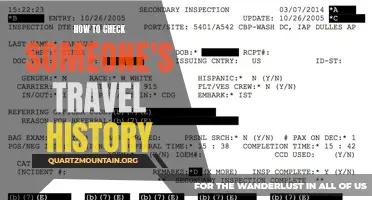
With their insatiable desire for unique experiences and their knack for digital technology, millennials have been catalysts for the transformation of the travel industry. As the largest living generation, their preferences and behaviors have forced businesses in the tourism sector to adapt and innovate. From their emphasis on sustainability and ethical travel to their reliance on social media for inspiration and recommendations, millennials have reshaped the way destinations are marketed and experienced. This article explores how millennials are shaping the tourism industry and the implications of their influence on future travel trends.
| Characteristics | Values |
|---|---|
| Independent travel | High |
| Adventure travel | High |
| Desire for unique experiences | High |
| Use of technology for travel planning | High |
| Emphasis on sustainability | High |
| Desire for authentic interactions with locals | High |
| Preference for experiential accommodations | High |
| Use of social media for travel inspiration and sharing | High |
| Budget-conscious travel | High |
| Flexibility in travel plans | High |
What You'll Learn

Millennial travel preferences and the rise of experiential travel
Millennials, the generation born between the early 1980s and the mid-1990s, are not like any previous generation when it comes to travel. They have unique preferences and priorities that are reshaping the travel industry. One of the key trends emerging among millennials is the rise of experiential travel.
Experiential travel is all about seeking unique and authentic experiences rather than ticking off popular tourist attractions. Millennials value experiences that are immersive, local, and off the beaten path. They want to engage with the local culture, try new things, and create meaningful memories.
So, what are the specific travel preferences of millennials, and how are these shaping the rise of experiential travel?
- Authenticity over luxury: Millennials value authenticity over luxury. They prefer to stay in local guesthouses or boutique hotels instead of big chain hotels. They want to eat at local restaurants that serve traditional cuisine rather than dine at fancy establishments. This emphasis on authenticity is driving the demand for experiential accommodation options like homestays, farmstays, and eco-lodges.
- Immersion in local culture: Millennials seek immersive experiences that allow them to get a deeper understanding of the local culture. They want to learn about the customs, traditions, and history of the places they visit. This has led to the popularity of cultural activities such as cooking classes, language lessons, and guided tours that provide insights into the local way of life.
- Adventure and outdoor activities: Millennials are an active generation and enjoy engaging in adventure and outdoor activities. They are more likely to go hiking, biking, kayaking, or even try extreme sports like bungee jumping or paragliding. This desire for adrenaline-pumping experiences has given rise to adventure tourism, with destinations offering a wide range of activities to cater to millennials' adventurous spirit.
- Technology-driven travel: Millennials are the first generation to have grown up with technology, and they are using it to their advantage when it comes to travel. They rely heavily on their smartphones for trip planning, booking accommodation, finding local recommendations, and sharing their experiences on social media. They also use travel apps to discover unique experiences and connect with like-minded travelers.
- Sustainability and responsible travel: Millennials are environmentally conscious and prioritize sustainability when choosing their travel experiences. They prefer eco-friendly accommodations, support local businesses and communities, and participate in activities that have a positive impact on the environment. This has given rise to the demand for sustainable travel options, such as eco-tours, voluntourism, and conservation-focused trips.
The rise of experiential travel among millennials is disrupting the traditional travel industry and challenging the notion of what a "good" travel experience should be. Millennials are redefining luxury, choosing immersion over superficiality, and seeking unique experiences over generic sightseeing. Their preferences are driving the demand for authentic, immersive, and sustainable travel options that cater to their desire for meaningful and transformative experiences. As the travel industry adapts to this new generation of travelers, it is essential to understand and embrace the preferences of millennials to stay relevant in the ever-evolving world of travel.
Exploring the Possibilities: Traveling on a CPT Visa
You may want to see also

The impact of social media on millennials' travel decisions
Social media has revolutionized the way millennials make travel decisions. With platforms like Instagram, Facebook, and YouTube, millennials have easy access to a wide range of travel inspiration and information. These platforms have dramatically impacted their travel decisions, leading to changes in the way they choose destinations, plan trips, and even how they experience their travel.
One of the biggest impacts of social media on millennials' travel decisions is the way it influences their destination choices. Millennials often rely on social media to discover new and trendy destinations. They look for Instagram-worthy spots, unique experiences, and off-the-beaten-path locations that are popular among their peers. They are more likely to visit places that are trending on social media, as they want to be part of the latest travel experiences and share them with their followers.
Moreover, social media also plays a significant role in millennials' trip planning process. They use platforms like Facebook groups, travel blogs, and online reviews to gather information and plan their itineraries. They seek recommendations from fellow travelers, read about their experiences, and find the best places to eat, stay, and visit. Social media allows them to access real-time information, making their planning process much smoother and more personalized.
Once their trip is underway, social media continues to impact how millennials experience their travel. Millennials are known for their desire to share their experiences with their friends and followers. They continuously update their social media accounts with photos, videos, and stories, documenting their journey and seeking validation from their online community. In fact, a study found that millennials spend an average of 5 hours per day on social media while on vacation. This constant connection to social media influences their perception of their travel experience, as they strive to curate the perfect feed and create envy-inducing content.
Social media also encourages millennials to try new things and explore different aspects of travel. It exposes them to unique travel experiences and opens their minds to new possibilities. From trying exotic foods to engaging in adventurous activities, millennials are constantly seeking memorable experiences to share on their social media platforms.
Although social media has made travel planning and experiences more accessible and interactive for millennials, it also has its downsides. The pressure to capture the perfect photo or video for social media can sometimes distract millennials from fully immersing themselves in the destination. Instead of enjoying the moment, they may be too focused on getting the right shot or worrying about the number of likes and comments they receive. This can lead to a distorted perception of travel as a mere performance rather than a genuine experience.
In conclusion, social media has undoubtedly changed the way millennials make travel decisions. It has impacted their destination choices, trip planning process, and the way they experience their travel. While it offers convenience and inspiration, it also comes with the need to strike a balance between capturing moments for social media and truly embracing the destination. As millennials continue to shape the future of travel, it is essential for them to remember to prioritize genuine experiences over the virtual world of social media.
Traveling to Canada on an F1 Visa: What You Need to Know
You may want to see also

The sustainability and eco-consciousness of millennial travelers
Millennials, one of the largest demographic groups in the world, are known for their unique values and preferences. When it comes to travel, millennials are increasingly prioritizing sustainability and eco-consciousness. In fact, this generation is leading the charge in reshaping the travel industry and pushing for more responsible and environmentally friendly practices.
So, how exactly are millennials changing the way we travel? Here are some key factors that highlight the sustainability and eco-consciousness of millennial travelers:
- Choosing eco-friendly accommodations: Millennials are seeking out accommodations that align with their values. They prefer staying in eco-friendly hotels that use renewable energy sources, have energy-efficient practices, and promote recycling and waste reduction. Additionally, many millennials opt for staying in eco-lodges, treehouses, or even camping, to immerse themselves in nature and reduce their environmental footprint.
- Embracing slow and sustainable travel: Unlike previous generations, millennials are not as focused on ticking off tourist attractions from their lists. Instead, they prioritize experiences that allow them to connect with local communities and truly understand the culture and traditions of the places they visit. This often means opting for slow travel, using public transportation, or even biking and walking to explore destinations.
- Supporting local and sustainable businesses: Millennials are conscious of the impact their travel choices have on local communities. They prefer to support local businesses, such as family-owned guesthouses, organic farmers markets, and community-based tour operators. By doing so, they contribute to the local economy and help preserve local traditions and craftsmanship.
- Minimizing their carbon footprint: Millennials are mindful of the carbon emissions associated with air travel. While some choose to offset their carbon footprint by investing in carbon offset programs, others opt for alternative modes of transportation, such as trains or buses, when possible. Furthermore, many millennials engage in eco-friendly activities like hiking, biking, or snorkeling, instead of opting for high-energy-consuming activities.
- Being conscious consumers: Millennials are known for their preference for ethically produced and sustainable products in their everyday lives. This consciousness extends to their travel choices as well. They actively seek out ethical souvenirs, locally made crafts, and fair-trade products. They also reduce their use of single-use plastics by carrying reusable water bottles, shopping bags, and toiletries.
- Raising awareness through social media: Millennials are digital natives and have a strong presence on social media. They use platforms like Instagram, Facebook, and Twitter to share their sustainable travel experiences and raise awareness about the importance of eco-consciousness. By doing so, they inspire their peers and encourage others to make more sustainable choices in their own travels.
In conclusion, millennials are driving a shift towards a more sustainable and eco-conscious travel industry. They are choosing eco-friendly accommodations, embracing slow and sustainable travel, supporting local businesses, and minimizing their carbon footprint. By being conscious consumers and using social media as a tool for advocacy, millennials are reshaping the way we travel and encouraging a more environmentally friendly approach. As this generation continues to grow and influence the travel industry, we can expect to see even more innovative and sustainable travel practices in the future.
Traveling to Canada on a US H4 Visa: What You Need to Know
You may want to see also

The rise of digital nomadism and remote work among millennials
As technology continues to advance, millennials are increasingly adopting a lifestyle known as digital nomadism. This trend involves using technology to work remotely from any location in the world, typically while traveling. With the ability to work from anywhere with an internet connection, millennials are reshaping the traditional understanding of work and travel. Here is how the rise of digital nomadism and remote work is changing the way millennials travel.
Flexibility and Freedom
Digital nomadism offers millennials the flexibility and freedom to create a lifestyle that suits their individual needs. Instead of being tied down to a traditional 9-to-5 office job, they can work from coffee shops, co-working spaces, or even from the comfort of their own home. This freedom allows them to travel and experience different cultures without sacrificing their careers.
Economic Opportunities
With the rise of remote work, millennials have access to a wide range of economic opportunities. They can take on freelance projects, start their own business, or join a remote team. The ability to work remotely opens up a world of possibilities for earning income while exploring new destinations. This has led to the emergence of digital nomad hubs in cities around the world, where like-minded individuals can connect and collaborate.
Work-Life Balance
Millennials value work-life balance more than any previous generation. They prioritize experiences and personal growth over material possessions. By embracing digital nomadism, they can travel and explore the world while still maintaining a fulfilling career. This lifestyle allows them to strike a balance between work and leisure, enabling them to pursue their passions and hobbies in addition to their professional goals.
Cost Savings
Traditional travel can be expensive, with costs for accommodation, transportation, and dining adding up quickly. Digital nomads, on the other hand, can save money by living and working in affordable destinations. By leveraging tools like house-sitting, co-living spaces, and local transportation options, they can stretch their budgets and make their money last longer. This allows them to travel for extended periods of time without breaking the bank.
Community and Networking
The rise of digital nomadism has given millennials the opportunity to connect with like-minded individuals from all over the globe. Digital nomad communities are formed in various cities and offer the chance to network, collaborate, and learn from others in similar situations. These communities often organize meetups, coworking events, and workshops to foster a sense of belonging and support. This social aspect of digital nomadism enhances the travel experience and makes it easier for millennials to adapt to new environments.
In conclusion, the rise of digital nomadism and remote work is revolutionizing the way millennials travel. Through flexibility, economic opportunities, work-life balance, cost savings, and community building, millennials are able to embark on travel adventures while still maintaining a fulfilling career. As this trend continues to grow, it is likely that more and more millennials will embrace the digital nomad lifestyle and shape the future of work and travel.
Exploring Travel Opportunities: Can US Visa Holders Journey to Canada?
You may want to see also
Frequently asked questions
Millennials are changing travel in a variety of ways. They prioritize experiences over material possessions, seek out unique and authentic destinations, and lean towards eco-friendly and sustainable travel options.
Millennials tend to prioritize experiences that allow them to immerse themselves in local culture and connect with others. They prefer activities such as food tours, volunteering, adventure tourism, and cultural immersion experiences.
Millennials often choose destinations that offer unique and authentic experiences. They are more likely to seek out lesser-known destinations or off-the-beaten-path locations rather than popular tourist destinations.
Millennials are more conscious of their environmental impact and are more likely to choose eco-friendly accommodations, sustainable transportation options, and support businesses that prioritize sustainable practices. They also tend to engage in sustainable activities, such as wildlife conservation and responsible hiking.
Millennials heavily rely on technology when it comes to travel. They use apps and websites to research and book trips, find local recommendations, share travel experiences on social media, and connect with like-minded travelers. They also use technology to access on-demand services and navigate their destinations.







